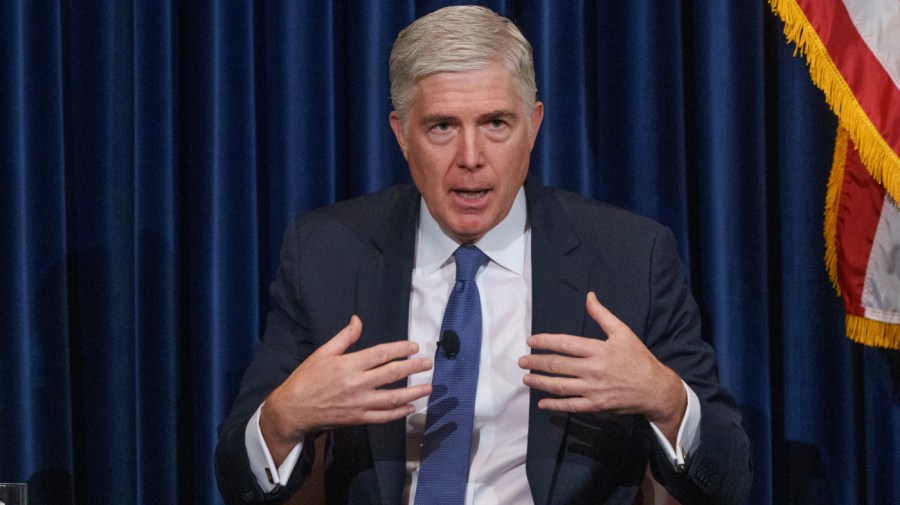
Supreme Court Justice Neil Gorsuch on Friday expressed concerns the divest-or-ban law targeting TikTok might not “achieve its goals.”
Gorsuch warned that foreign adversaries could ultimately turn to another application for surveillance of U.S. data if TikTok is no longer used in the U.S.
“Whether this law will succeed in achieving its ends, I do not know. A determined foreign adversary may just seek to replace one lost surveillance application with another,” Gorsuch wrote in a concurrence with the Supreme Court’s decision to uphold the TikTok ban.
“As time passes and threats evolve, less dramatic and more effective solutions may emerge. Even what might happen next to TikTok remains unclear,” he added.
The court on Friday unanimously upheld a law requiring TikTok’s China-based parent company to divest from the app amid national security concerns. In a 9-0 decision, the justices found the ban does not violate the First Amendment as TikTok argued in court earlier this month.
Gorsuch said he agreed with the high court’s decision not to rely on the government’s concerns about the nature of content on TikTok as a justification to ban the app.
“One man’s ‘covert content manipulation’ is another’s ‘editorial discretion,'” Gorsuch wrote. “Journalists, publishers, and speakers of all kinds routinely make less-than-transparent judgments about what stories to tell and how to tell them.”
The court was also right not to rely on classified or secret evidence the government submitted to the court, but not to TikTok and its attorneys.
“Efforts to inject secret evidence into judicial proceedings present obvious constitutional concerns,” Gorsuch wrote, adding later, “As the Court recognizes, we have no business considering the government’s secret evidence here.”
The ban law passed Congress with wide bipartisan majorities and was signed by President Biden in April. It gave TikTok until Sunday to either divest from its Chinese parent company, ByteDance, or face a ban in the U.S.
Gorsuch wrote he was persuaded the law is rooted in a “compelling interest,” as it seeks to prevent a foreign country from gathering troves of personal data about millions of Americans.
The Biden administration, however, has signaled it does not plan to enforce the law ahead of President-elect Trump’s inauguration, leaving the decision to the incoming administration and seemingly keeping the app online for the time being.
Trump, who will be sworn into office one day after the ban is set to take effect, said Friday said he would be making a decision about the fate of TikTok.












